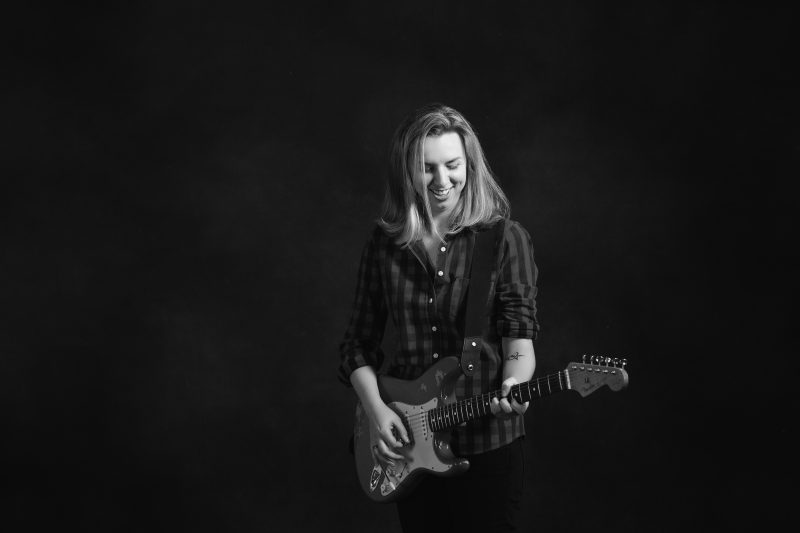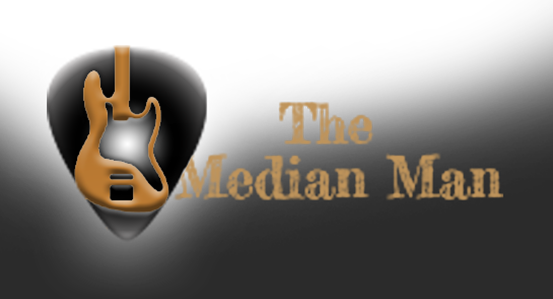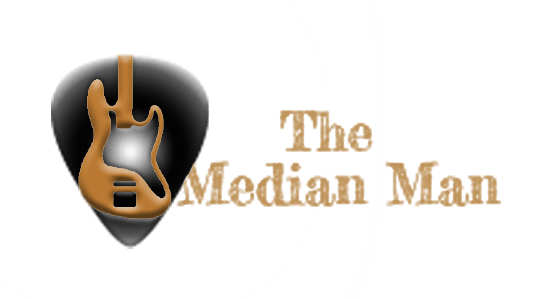
An interview with Amy Mantis



An interview with Amy Mantis
What inspired the name of the band? What are your influences?
Amy: The original name for the band was just “Space Between.” It came to me as I was flying back from LA after recording the Where the Mountain Should Be EP. That was my first time recording as the singer of my own songs. I was thinking about what to name that EP and had come up with the title The Space Between New And Old, as that’s where I felt like my music lived. And then I thought, “Why don’t I call the EP The Space Between? No. Why don’t I call the band The Space Between? It was a revelatory moment.
I also thought it sounded like a band that should already exist, and I liked that. I still don’t know how there wasn’t a band that popped up in like 1974 called The Space Between. It totally should have happened!
Eventually we dropped the “the” and started gigging as “Space Between.” Then after our keyboard player/my songwriting partner moved to LA, I thought, “I’m singing and writing all the songs now, and my name is highly Googleable – I think it should go in front of the band name.” So I proposed this idea to Eric and Jeff. They were supportive, and now here we are. And it feels right. My hero is Tom Petty, and most of his career was spent as “Tom Petty & the Heartbreakers.”
As for influences, I’m a classic rock junkie. Some notable ones from that arena are the aforementioned Tom Petty, Bruce Springsteen, Fleetwood Mac, the Pretenders, and basically the entire British Invasion. I started listening to classic rock when I was 13 and I haven’t stopped. My cousin, who served as an inspiration for me to start playing guitar, gave me a bunch of burned CDs when I was 13. Led Zeppelin, Pink Floyd, Rush, all kinds of goodies. And from there I just kept digging and listening.
Eric: The first tape I ever bought was Motown Philly. We had that, C&C Music Factory, Bad, and I think the Ghostbusters soundtrack. Maybe Jesus Jones, too. I got a good amount of exposure to classic rock just by riding in the car with my dad. My mom’s tastes were a little more contemporary, so I remember listening to, like, the B52s or PM Dawn or Patti Smith, the Indigo Girls, or Talking Heads. And my brother was old enough to be basically the key demo for the whole grunge thing, so I got exposure to all that stuff, and that was the gateway to punk and metal and stuff. I remember we used to cover “Bombtrack” by RATM and “Anti-Manifesto” by Propaghandi in the basement.
Through high school, punk, hardcore, ska, and reggae were basically the only kinds of music I listened to. In college, my tastes expanded in a few different directions: indie, prog, electronic music, hip-hop, noise and experimental. I’ve always had a thing for music that’s strange and self-aware about its strangeness: Panda Bear, Boredoms, or Osees. Beck is also a huge influence. Beck’s Odelay was an album I laughed my ass off at like, “Wtf is this?”, drummed along to obsessively, gave away because I was “done with it,” then bought it again and went all the way back to just laughing my ass off at how audacious and strange and weirdly catchy the whole thing is. But then he’s got this other side, his, like, secret Elliott Smith side, where he can just shoot an arrow straight through your heart. It’s an incredible skill.
Now, I really just listen to everything. I like Jess Williamson’s newest record. I’ve had “Claws” by Charli XCX stuck in my head all day. Ohmme’s new record is really good. The Yves Tumor record that came out earlier this year is excellent. ACxDC and Backxwash are both super exciting.
How do you approach songwriting? Are there any themes that you are keen to explore when you start off?
Amy: I write pretty much every day. Less so in this pandemic, but historically speaking, I write six days a week on average. Rarely do I set out with, “I want to have a song about this,” when I go to write. It’s more of a way for me to organize my thoughts and feelings and make sense of them. Or attempt to make sense of them. Sometimes I can and sometimes I can’t but either way I get a song out of them.
I’m a believer in that writing begets writing. I’m always on the prowl to top myself as a songwriter and I think in order to do that, I have to keep it as a part of my daily practice. When it comes to the harmonic elements (chords, melody, etc), it’s less of a conscious daily thing. I’ll sit down here and there with my guitar to specifically work on a song, but when that happens, I usually end up writing a better song than the one I was about to wrestle with. We have a song on our next project called “If I Don’t Change It,” and I accidentally wrote it one day when I was trying to work on another song. I love those sort of moments, but in order to get them, you have to not only be open to them, but also have to put the work in at points where you may have been less inspired.
Eric: One of the things I like most about working with Amy is that her songs usually touch on subject matter and ideas that I think are important or interesting or relatable. I think an aspect of our name that we talk less about is the idea that you could interpret Amy’s songs as very much coming from the space between her ears. I think it’s important, and therapeutic, to have that kind of self-dialog. So when I see Amy sort of demonstrating hers for others, like, “Hey, when I run into this kind of problem, here’s how my thoughts and feelings work.” I feel like that’s something I want to try to amplify as much as possible. I think if Amy were writing about, just, you know, boilerplate, heart-eyed love songs or poor-me-sob-story stuff, I don’t know if I’d have the same connection to the material. But Amy’s songs are often about acceptance and resilience, balancing restraint and catharsis, negotiating the internal and external. That aspect of her writing really appeals to me.
Why do you write the sort of music that you do?
Amy: That’s an interesting question. We’re a rock band. All my bands in the past have been rock bands. I can’t imagine writing songs for my own bands that weren’t in the realm of rock because it feels right to me. I think, for the most part, any song of mine can be played in a rock band or as a solo singer/songwriter type of song, but if given a choice I will always pick the band because it’s what feels the best for me.
I’ve been writing songs since I started playing guitar 17 years ago. I wrote my first song – or I should say I finished and shared my first song when I was 14, about a year after I started playing. And I can see a throughline from that song to what Eric and I are working on now. The songs we have now would blow the mind of my 14 year old self in more ways than one, but the tree that is bearing the fruit we have now was watered by that 14 year old kid. And I like that. I like the connection to my past selves through my songs.
Eric: I did a lot of genre hopping when I was younger: trying to throw a hip-hop groove into rock songs or having a one-drop song on a punk record or doing like a kind of proggy post-rock/post-hardcore jazz-fusion thing. Those projects, the aesthetic was mostly determined by someone else, but when I would sit down to play by myself, I noticed I liked to play pop-rock songs with big, climactic bridges and choruses, and that’s what I play best, too.
I also like the idea of looking at a problem and just sort of saying, “Fuck that.” instead of coming up with all these — clever or not — ways to dance around it.
Like, people aren’t really making good, original, guitar-oriented rock music right now, and rather than sit around complaining about how rock is dead or how nobody wants to listen to it or whatever, which we know isn’t true, we just try to play good, original, guitar-oriented rock music. It’d be easy to say, “Let’s do a post-punk record.” or “Let’s do a synth-pop album.” or “Let’s ride this nu-metal revival wave.” because those niche genres are popular right now, but by the same token, there’s a lot of young people out there who listen to Fleetwood Mac or the Eagles or the Doors or Jimi Hendrix.
So it’s not a problem with the kind of music. It’s a problem with linguistics and perception and how we talk about rock music. If we keep saying it’s dead, and the only mainstream examples we have to counter that narrative are bands that sound like Led Zeppelin or Nirvana cover bands, then that feeling will persist, and we’ll keep saying it, and that’s the reality we’ll make for rock music. What a waste of time and energy and talent, bending over backwards to satisfy the zeitgeist when the zeitgeist is always up for grabs.
I think in six months, a year, whenever it is that we can get back out there and play, people are going to be missing what we bring: loud, unselfconscious, aggressive rock and roll.
How do you decide what songs to perform live and how do you transpose them into that live setting?
Amy: I tend to write with how a song will sound live in mind. As far as I’m concerned, every song we have can be played live. It might be a touch different than on the album, but all of these songs translate into a live setting well. We’ve played every song on A Place to Land live many, many times, and I’ve never felt like we shouldn’t play any song we have live.
Eric: I think the only song we have that changes substantially in a live setting is “Next Time We Talk.” Live, we have the rhythm section going through the whole song, whereas on the record, we left the first half more spare and minimal. Otherwise, what you hear on our records is roughly what you’re going to hear live. That was our intent in making this record, especially: create an artifact of our live show. I think we always want our records to sound like a band playing in a room. I think it’s a challenge to do that in 2020 and still find ways to sound modern and of the times, but I think part of the reason that Amy and I make such a good team is that we both kind of straddle that old vs. new line in our way.
How do you decide what songs to perform live and how do you transpose them into that live setting?
Amy: I tend to write with how a song will sound live in mind. As far as I’m concerned, every song we have can be played live. It might be a touch different than on the album, but all of these songs translate into a live setting well. We’ve played every song on A Place to Land live many, many times, and I’ve never felt like we shouldn’t play any song we have live.
Eric: I think the only song we have that changes substantially in a live setting is “Next Time We Talk.” Live, we have the rhythm section going through the whole song, whereas on the record, we left the first half more spare and minimal. Otherwise, what you hear on our records is roughly what you’re going to hear live. That was our intent in making this record, especially: create an artifact of our live show. I think we always want our records to sound like a band playing in a room. I think it’s a challenge to do that in 2020 and still find ways to sound modern and of the times, but I think part of the reason that Amy and I make such a good team is that we both kind of straddle that old vs. new line in our way.
What plans do you have for the future?
Our new album is released in November, and after that we hope to tour. Most likely in Europe in the new year, and to promote the album.
Amy: At some point in the next year, we’ll be releasing two EPs that we’ve started working on already. Each is five songs long, and each song on each EP kind of correlates to its respective song on the other EP, so they’re kind of paired together. We’re starting to get an idea of what they’ll be called and how we’ll release them, but we won’t say too much just yet.
Eric: We’re looking to do a different release format, too. Rather than simply releasing one EP and then the other or releasing a full album, we’re going to release the EPs simultaneously, along with a bonus track called “Black Swan.” Each EP kind of has its own vibe, so we want to make it so that if someone really vibes with one of the EPs, they can buy that on its own, but if they vibe with both, they can get both at once with the bonus track, which amounts to a full-length album of material.

